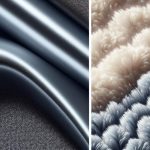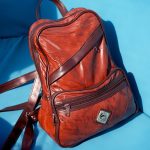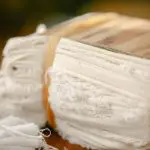You may be wondering if polyprop webbing is truly the ultimate fabric choice.
With its exceptional strength, moisture resistance, and affordability, polypropylene webbing stands out as a versatile and durable option for a wide range of applications.
Its ability to withstand harsh environments and its minimal maintenance requirements make it a practical and reliable choice for those seeking a fabric that can endure the rigors of various projects.
In this exploration, we will delve into the attributes of polyprop webbing and compare it to other fabrics, providing you with the information you need to make an informed decision about whether it is the ultimate fabric choice for your specific needs.
Key Takeaways
- Polyprop webbing offers exceptional strength and durability for tough applications, making it ideal for industries such as construction and outdoor gear.
- The material is moisture resistant, preventing mold and mildew growth, and maintaining functionality and appearance in various environments, including marine and humid indoor spaces.
- Polyprop webbing is a cost-effective option that provides long-term performance and wear and tear resistance, reducing the need for replacements and repairs.
- The production of polyprop webbing prioritizes environmental sustainability through eco-friendly manufacturing processes, recyclability, and minimal waste and energy consumption.
Strength and Durability
When considering polyprop webbing, you can rely on its exceptional strength and durability for your toughest applications. The material's long-term performance and wear and tear resistance make it a top choice for demanding tasks. Polypropylene webbing also boasts impressive weight-bearing capacity, making it suitable for heavy loads and high-stress situations. Its load capacity is a key feature for industries such as construction, outdoor gear, and transportation where reliable and robust materials are crucial.
The polypropylene webbing's ability to withstand prolonged use without deteriorating ensures that it meets the needs of applications requiring durability over extended periods. This is particularly advantageous in scenarios where frequent or heavy use could compromise the integrity of lesser materials. Whether it's securing cargo, supporting weight, or enduring tough environmental conditions, the strength and durability of polyprop webbing make it an ideal choice for those seeking reliability and longevity.
Moisture Resistance
You can rely on polyprop webbing's exceptional moisture resistance, ensuring its suitability for a wide range of environments and conditions, from outdoor use to humid indoor settings.
Polypropylene webbing offers several advantages related to moisture resistance:
- Mold Resistance: Polyprop webbing is inherently resistant to mold growth, making it an ideal choice for applications where exposure to moisture is a concern. This resistance helps maintain the integrity and aesthetics of the webbing over time, even in damp conditions.
- Quick Drying: When exposed to moisture, polypropylene webbing dries quickly, preventing the growth of mold and mildew. This quick-drying characteristic makes it a practical choice for outdoor activities, where exposure to rain or water is common.
- Outdoor Use: With its water-repellent properties, polyprop webbing is well-suited for outdoor applications. Whether used in camping gear, backpacks, or outdoor furniture, its ability to repel water enhances its durability in various outdoor settings.
- Versatile Performance: From marine environments to humid indoor spaces, polypropylene webbing's moisture resistance allows it to maintain its functionality and appearance, making it a versatile choice for a wide range of uses.
Affordability
When it comes to affordability, polyprop webbing is a cost-effective material option for various applications. It offers a budget-friendly fabric choice without compromising on quality or durability.
This makes it an economical webbing solution for those seeking high-performance materials at a reasonable price.
Cost-Effective Material Option
An affordable material option for various applications, polyprop webbing offers durability and cost-effectiveness. When considering cost-effective material options, polyprop webbing stands out for several reasons:
- Long-Term Investment: Polypropylene webbing's durability ensures a long-term investment, making it a cost-effective choice for projects requiring longevity.
- Affordability: Polyprop webbing provides cost-effective solutions for various applications, offering durability at a reasonable price point.
- Low Maintenance: Its resilience to moisture, mildew, and UV rays reduces the need for frequent replacements or repairs, contributing to cost-effectiveness.
- Versatility: Polyprop webbing's strength and versatility make it a cost-effective choice for a wide range of applications, from outdoor gear to industrial uses.
Polyprop webbing's cost-effectiveness and durability make it a compelling option for those seeking long-lasting, affordable material solutions.
Budget-Friendly Fabric Choice
Considering affordability, polyprop webbing stands out as a budget-friendly fabric choice for a wide range of applications. Its cost-effectiveness doesn't compromise on quality, making it an ideal choice for those seeking durability without breaking the bank.
Polypropylene webbing offers exceptional material longevity, ensuring that your investment goes a long way. Its resistance to mildew, moisture, and stretching further enhances its value for money, as it reduces the need for frequent replacements.
Additionally, polyprop webbing comes in a variety of color options, allowing you to select the most cost-effective yet aesthetically pleasing solution for your specific needs. This versatility in color choices means that you can achieve the desired look without exceeding your budget.
When it comes to affordability, polyprop webbing is an excellent choice for those seeking durability and cost-effectiveness.
Economical Webbing Solution
If you're on a tight budget, polyprop webbing offers a cost-effective and durable solution for your webbing needs. It provides material benefits and cost savings that make it an economical choice for various applications.
Here's why polyprop webbing is an affordable option:
- Durability: Polypropylene webbing is highly resistant to stretching, abrasion, and mildew, ensuring long-term use without frequent replacements.
- Low Maintenance: Its easy-to-clean nature reduces the need for costly upkeep, saving you time and money in the long run.
- Versatility: Polyprop webbing's versatility allows it to be used in a wide range of applications, eliminating the need to invest in multiple specialized materials.
- Longevity: With its ability to withstand harsh environmental conditions, polyprop webbing offers a durable solution that minimizes the frequency of replacements.
Versatility in Applications
You can use polyprop webbing in a wide range of applications due to its exceptional strength and durability. When it comes to outdoor applications, polypropylene webbing offers unparalleled flexibility in use. It's resistant to moisture, mildew, and UV rays, making it an ideal choice for outdoor furniture, camping gear, backpacks, and other outdoor equipment. Its ability to withstand harsh weather conditions and heavy loads makes it a reliable option for outdoor enthusiasts and manufacturers alike.
In industrial uses, polyprop webbing is valued for its reliability and performance. Whether it's securing cargo, lifting heavy loads, or serving as harnesses and safety straps, polypropylene webbing provides the strength and durability required in industrial settings. Its resistance to acids, alkalies, and solvents further enhances its suitability for industrial applications, including transportation, construction, and manufacturing.
In addition to outdoor and industrial applications, polypropylene webbing is also utilized in various other sectors such as automotive, medical, and sporting goods. Its versatility and durability make it an excellent choice for a wide array of uses, cementing its status as a top fabric choice across diverse industries.
Environmental Impact
When selecting polyprop webbing, assess its environmental impact by considering its recyclability and carbon footprint.
Polypropylene webbing is manufactured using eco-friendly processes, emphasizing waste reduction and resource efficiency. Its production involves minimal waste and energy consumption, contributing to environmental sustainability.
In addition, polyprop webbing is recyclable, allowing for the reuse of materials and reducing the overall environmental impact. Furthermore, the biodegradability of polypropylene webbing ensures that at the end of its lifecycle, it can naturally decompose, further minimizing its impact on the environment.
The manufacturing of polyprop webbing prioritizes eco-friendly practices, supporting sustainable production methods and reducing environmental harm.
By considering these factors, you can make an informed decision regarding the environmental impact of polyprop webbing and its alignment with your sustainability goals.
- Eco-friendly manufacturing processes prioritize waste reduction and resource efficiency.
- Recyclability enables the reuse of materials, reducing environmental impact.
- Biodegradability ensures minimal environmental impact at the end of the product's lifecycle.
- Prioritizing environmental sustainability through sustainable production methods.
Maintenance and Cleaning
When it comes to maintaining and cleaning your polyprop webbing, proper storage techniques and gentle cleaning methods are key.
Storing your webbing in a cool, dry place away from direct sunlight can help prolong its lifespan.
When it comes to cleaning, using mild soap and water and avoiding harsh chemicals will ensure that your polyprop webbing stays in top condition.
Proper Storage Techniques
To maintain and clean polyprop webbing, it's important to regularly inspect for any signs of damage or wear. Proper storage techniques are essential for preserving the quality and longevity of the material.
Here are some key tips for maintaining and storing polyprop webbing:
- Store in a cool, dry place away from direct sunlight to prevent UV damage.
- Avoid storing in areas with high humidity to prevent mold and mildew growth.
- Roll or fold the webbing carefully to prevent creasing and weakening of the fibers.
- Use a breathable storage container or fabric bag to protect the webbing from dust and debris while allowing air circulation.
Gentle Cleaning Methods
Inspect your polyprop webbing regularly for any signs of dirt or stains, as gentle cleaning methods are essential for maintaining its quality and longevity.
To keep your webbing in top condition, opt for eco-friendly cleaning solutions and gentle care practices.
Start by removing any loose dirt or debris with a soft brush or cloth.
For more stubborn stains, use a mild soap and lukewarm water, avoiding harsh chemicals that can degrade the fabric.
Gently scrub the affected areas and rinse thoroughly.
Allow the webbing to air dry completely before storing it.
Long-term maintenance and fabric preservation rely on regular cleaning and avoiding abrasive techniques.
Comparison to Other Fabrics
You can't go wrong with polyprop webbing when compared to other fabrics for strength and durability. When it comes to cost comparison, polypropylene webbing is more affordable than materials like nylon or polyester, making it a cost-effective choice for various applications. In terms of performance comparison, polypropylene webbing excels in resisting moisture, mold, and mildew, outperforming natural materials like cotton or hemp.
- Strength: Polyprop webbing offers exceptional strength, outperforming natural fibers like cotton and synthetic materials like nylon in various applications.
- Durability: Compared to other fabrics, polypropylene webbing is highly durable and resistant to wear and tear, making it suitable for outdoor and heavy-duty use.
- Moisture Resistance: Unlike materials such as cotton or hemp, polypropylene webbing is highly resistant to moisture, making it ideal for use in wet or humid conditions.
- Mold and Mildew Resistance: Polypropylene webbing outshines fabrics like cotton in its ability to resist mold and mildew, ensuring longevity and hygiene in various applications.
Considerations for Specific Projects
When considering specific projects, factor in the intended usage and environmental conditions to ensure that polyprop webbing meets the specific demands of your application. Project suitability is crucial when determining whether polyprop webbing is the ultimate fabric choice for your particular endeavor.
For example, if you're working on an outdoor project that requires a material with high UV resistance and water repellency, polypropylene webbing could be an excellent fit due to its ability to withstand prolonged exposure to sunlight and moisture.
Furthermore, customization options play a significant role in project suitability. Polyprop webbing can be tailored to meet specific project requirements, such as width, color, and strength. Whether you need a narrow, high-tensile webbing for backpack straps or a wider, more flexible webbing for marine applications, polypropylene offers customization options to align with your project needs.
Considering these factors will help you determine if polyprop webbing is the ultimate fabric choice for your specific project. By assessing project suitability and exploring the customization options available, you can ensure that polyprop webbing meets the unique demands of your application.
Frequently Asked Questions
Is Polyprop Webbing Safe for Use in Outdoor Activities Such as Rock Climbing or Hiking?
Polyprop webbing is safe for outdoor activities like rock climbing or hiking, but safety precautions are necessary. It's durable and offers various color options. Consider its environmental impact and follow guidelines for safe usage.
Can Polyprop Webbing Be Used for Pet Accessories Like Leashes and Collars?
Yes, polyprop webbing is suitable for crafting pet accessories like leashes and collars. It's durable and water-resistant, making it ideal for pet training and outdoor adventures. Its strength and versatility make it a popular choice.
How Does Polyprop Webbing Compare to Nylon Webbing in Terms of Stretch and Flexibility?
When comparing polyprop webbing to nylon webbing, consider durability and cost. Polyprop offers excellent durability and is cost-effective, while nylon provides more stretch and flexibility at a higher cost. Both have their strengths.
Is Polyprop Webbing Suitable for Use in Marine Environments, Such as for Boat Rigging or Towing Applications?
Yes, polyprop webbing is suitable for marine environments. It offers excellent saltwater resistance and durability. With high load bearing capacity and UV protection, it's a reliable choice for boat rigging and towing applications.
Are There Any Specific Considerations for Using Polyprop Webbing in DIY Projects or Crafting Applications?
When using polyprop webbing for DIY projects or crafting applications, consider its durability, lightweight, and resistance to mildew. It's ideal for making straps, handles, and outdoor gear. Ensure proper heat sealing for clean edges.
- Can You Paint Chiffon Fabric? - April 23, 2024
- Is Chiffon a Lightweight? - April 23, 2024
- Is Chiffon Cool in Hot Weather? - April 23, 2024








